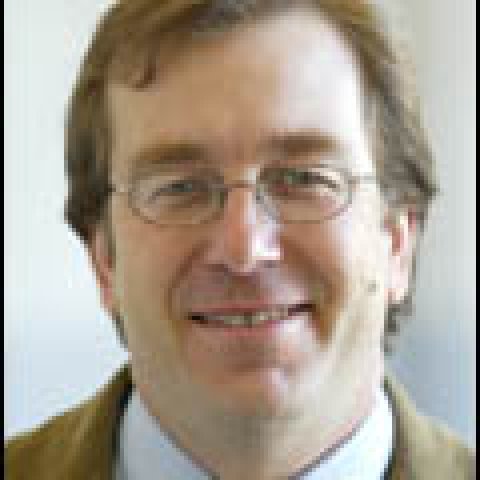Rey Koslowski
Former Fellow
Professional Affiliation
Associate Professor of Political Science, Rutgers University, Newark
Expert Bio
A research project that joins two apparently divergent topics such as international migration and information technology reflects my interdisciplinary bent, combined with a desire to understand emerging issues and political change. My academic training began at Wesleyan University's College of Social Studies, an interdisciplinary program in economics, government, history, and philosophy and was then followed by graduate studies in political science at the University of Pennsylvania. I chose to write my dissertation on international migration, a topic that had been virtually ignored in my field of international relations but was an increasing concern among foreign policy makers and a major feature of the globalization of the post-Cold War world. In 1995, I joined the Rutgers-Newark Political Science Department and Rutgers' newly established Center on Global Change and Governance, which offered an interdisciplinary graduate program in global studies and a research program on globalization. There, as well as on fellowships at Georgetown and Princeton, I continued my research on migration and explored my growing interest in the influence of information technology on governance and diplomacy. My book, Migrants and Citizens: Demographic Change in the European States System, demonstrated the influence of international migration on the course of world politics—including the expansion of the European state system over the rest of the world, the rise of the U.S. and Russia as great powers, increasing EU cooperation on erecting a common external border, and NATO intervention in Kosovo. I explained the increasing political salience of migration by focusing on the changing demographics that shaped the political institutions of the international system of nation-states and argued that increasing migration generates growing discrepancies between people and place, citizenry and state, demos and democracy that challenge traditional state-centric conceptualizations of world politics and generate practical policy dilemmas. This theoretical foundation became the starting point for a more policy-oriented project that examined the challenges posed by human smuggling to states as well as the dilemmas of international cooperation among states to combat human smuggling. I concluded that tighter border controls have the unintended side effects of pushing migrants and refugees into the arms of smugglers and, as long as destination states fail to enforce policies that cut demand for smuggled labor, significant reduction of human smuggling is unlikely, despite multilateral agreements. My interest in information technology goes back to graduate school research on the collapse of communism in which I considered the role of radio, copy machines, telephone, fax, and the Internet in the facilitation of dissident networks and the emergence of "civil society." This initial interest resurfaced when I began teaching a graduate course that examines the practical impact of the information revolution on diplomacy, international political economy, national security, and international organizations, such as the World Bank, European Union, and the United Nations. My course explored the move from so-called "legacy systems" to integrated suites of standardized business software known as enterprise systems, the development of web technologies that connect enterprise systems and enable business-to-business (B2B) e-commerce and public sector versions of enterprise systems used for e-government. This inspired a research project on U.S. Customs information technology initiatives that could take advantage of increasing flows of data associated with B2B e-commerce to more effectively target shipping containers that are at higher risk of being used by terrorists. The September 11, 2001 attacks on the World Trade Center and Pentagon marked another transition in international relations—to a world in which non-state actors may be armed with weapons of mass destruction; i.e., a world in which deterrence theory, and policies based on it, may no longer apply. My research on migration, human smuggling, information technology, and container security has prepared me to try to make sense of at least one aspect of this new condition of world politics.
Education
B.A. (1983) College of Social Studies, Wesleyan University; Ph.D. (1994) Political Science, University of Pennsylvania
Subjects
Homeland Security,Immigration,Information Technology
Experience
- Associate and Assistant Professor, Department of Political Science, Rutgers University, Newark, 1995-present
- Director of the Research Program on Border Control and Homeland Security, Center for Global Change and Governance, Rutgers University, Newark, 2002-03
- Graduate Program Director, Department of Political Science, Rutgers University, Newark, 2002-03
- Adjunct Associate Professor of Public Affairs, Columbia University, Spring 2003
- Visiting Fellow, Center of International Studies, Princeton University, 1999-2000
- Research Associate, Center For German and European Studies, Georgetown University, 1996-97
- Lecturer, Political Science Department, University of Pennsylvania, 1994-95
Expertise
U.S. and EU immigration and citizenship policies; border control and homeland security; e-government and e-diplomacy
Wilson Center Project
"International Migration, Border Control and Homeland Security in the Information Age"
Project Summary
This project examines the impact of the information revolution on international migration and vice versa in order to gain a better understanding of the long-term challenges of border control and homeland security in a world transformed by the 9/11 attacks. It will focus on the United States government's efforts to selectively control migration using new information technologies in order to shape flows of human capital to the needs of a technology-driven, globalizing economy, the security consequences of this selective migration strategy, as well as the political tensions associated with the often conflicting imperatives of homeland security and economic globalization.
Major Publications
- Migrants and Citizens: Demographic Change in the European States System (Cornell University Press, 2000)
- Global Human Smuggling: Comparative Perspectives, co-editor (Johns Hopkins University Press, 2001)
- "Human Migration and the Conceptualization of Pre-modern World Politics," International Studies Quarterly, vol. 46, no. 3, September 2002
- "Understanding Change in International Politics: The Soviet Empire's Demise and the International System," co-author, International Organization, vol. 48, no. 2, Spring 1994
Insight & Analysis by Rey Koslowski
Filter
- Publication
- Global Governance
299. New Technologies of Border Control in an Enlarged Europe

- Video
Desperate Passages: Human Smuggling in the 21st Century

- Video
Desperate Passages

